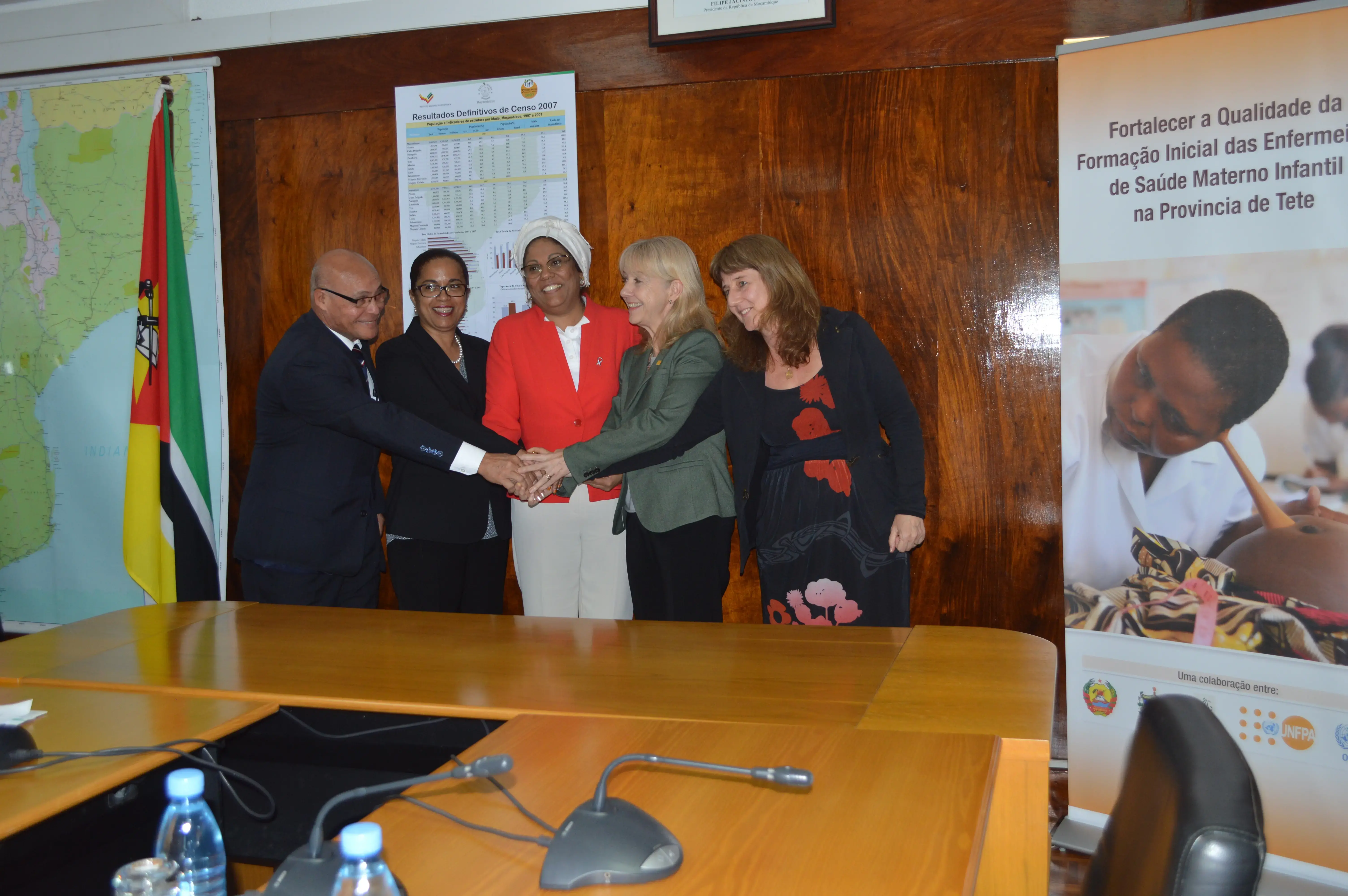Written by: Luísa Galvão, Gender/GBV Specialist, Spotlight Initiative, UNFPA Mozambique
Mozambique - As the saying goes, "you cannot solve a problem that you don't understand." This is critical when it comes to collecting and using data to make informed, evidenced-based decisions on issues such as ending sexual and gender-based violence (SGBV).
"To put an end to violence, it is necessary to know its patterns and trends, understand who are the victims and their aggressors, what are the services and barriers to access, while ensuring that confidentiality, ethics, and security considerations are taken into account in the data use and collection process,” said Andrea M. Wojnar, the Country Representative of UNFPA Mozambique.
At the heart of GBV data are survivors. "Each piece of data that's generated and details collected is the story of a woman with the courage to speak out and denounce, and we cannot let them down" emphasized Ms. Wojnar.
Around the world, it is estimated that more than 1 in 3 women are victims of gender-based violence at some point in their lives, representing one of the most widespread forms of human rights violations globally.
This is a similarly grim reality in Mozambique, with the latest data from the Demographic and Health Survey 2011 highlighting that more than 37% of women in Mozambique have experienced sexual or physical violence. At the same time, only 4 in 10 survivors of sexual violence in Mozambique have told someone or asked for help.
How GBV data systems can help survivors
Improving SGBV data systems is critically important not only to inform policy-making, but to enable the safe, ethical, and effective sharing of reported incident data among essential SGBV service providers (health, police, justice and social) so that survivors can receive integrated services, care, and access to justice.
*Maria is a 14 year old survivor of sexual violence in the city of Nampula. After she was raped, she contacted Ophenta (a civil society organization) with the support of her uncle, and an activist accompanied her to a one-top center for survivors of violence (CAI), where she could access essential health, psychosocial, legal, and police services in one place.

"The CAI was able to resolve my case. They referred the case to the police and sent me to the hospital for analysis. I was very well received and treated. The case was tried and is well resolved, we were very satisfied. When people take their case to a CAI, they can solve it without any problem. The perpetrator was sentenced to 12 years in prison on June 26, 2020,” shares Maria.
A case in point: The integrated, survivor-centered work of the CAI is facilitated by the use of a single file called "ficha única." This single file is used to register medical, psycho-social, police, legal support to GBV cases. It assigns a single number for each survivor, avoiding duplication of data, and allows for collection of demographic information. CAI staff have been trained on how to fill it out in a way that is sensitive to survivor’s trauma. Each professional in the different sectors has access to information on the services received by the survivor that are relevant to their interventions. The right to privacy of the person seeking support services requires that a data confidentiality policy be followed. For example, HIV test results are not divulged to those in sectors for whom that information is irrelevant.
Thanks to this single file system, service-providers from different sectors can streamline the referral process among them. By doing so, SGBV survivors like Maria can efficiently and safely have their needs met and access justice, while avoiding the potential trauma of recounting their story, which can be a form of revictimization. With improved survivor-centered care, more survivors might feel encouraged to seek help.
Improving GBV data systems through coordination and innovation
GBV data comes in many forms, from national or sample demographic or health surveys, to administrative data collected at services like health facilities or police units, to qualitative studies and others.
In an effort to improve systems for the collection, harmonization, and use of data on sexual and gender-based violence, UNFPA and the National Statistics Institute (INE) organized a seminar for various stakeholders to discuss the specifics of survey and administrative data on sexual and gender-based violence that are collected by the institutions and to listen to sectors for guidance and coordination.
On the occasion of the seminar, the President of INE, Dra Mónica Magaua, expressed that one of the biggest challenges facing INE today is the production of statistical information to respond to the indicators of the Sustainable Development Goals (SDGs) and other national and international programs and policies on gender-based violence.
With UNFPA support under the EU-funded Spotlight Initiative, the Ministry of Interior is scaling-up a digital platform, InfoViolencia, to register and manage GBV cases.
In the long term, the system will facilitate the referral of survivors to other institutions that provide essential GBV services, such as health units, administrations of justice (Prosecutors and Courts), and social services.
InfoViolência - as a digital tool - represents an important step in the country’s ability to better manage, analyze and use data on violence cases, thus streamlining and speeding up the quality and timeliness of services and access to justice for survivors of GBV.
A full pilot of the database is currently being conducted. In the spirit of data-informed and evidence-based efforts, InfoViolencia will be instrumental in developing and implementing policies and programmes on GBV in the country.
Efforts like the institution of the Single File, the development of InfoViolencia GBV information management system, and GBV data coordination across sectors are helping to ensure that girls or women like Maria can get the immediate support they need in a safe, respectful and efficient way, and to generate information and evidence to help eliminate this urgent and widespread human rights violation once and for all.
*Name changed for anonymity of the survivor.



